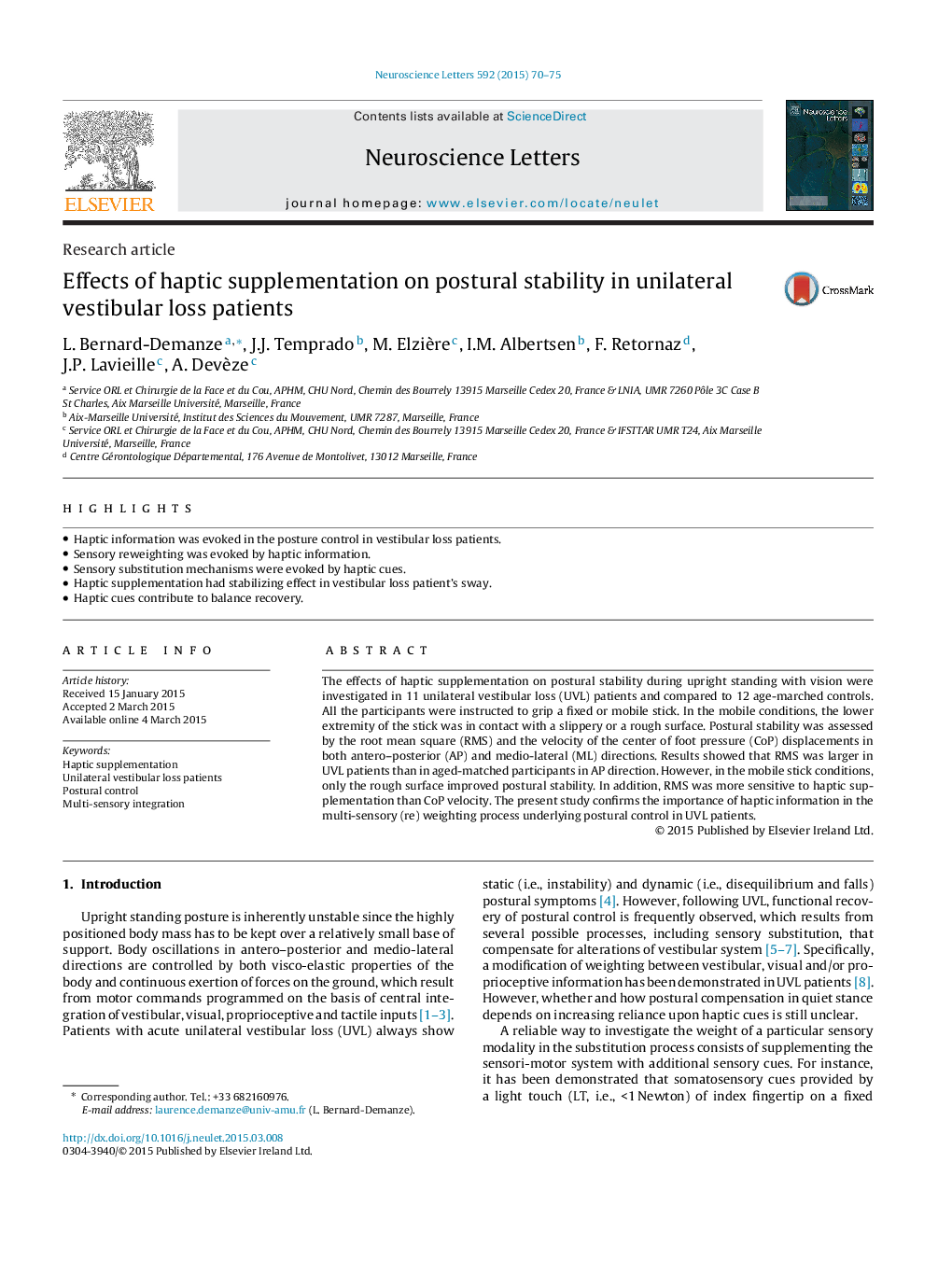| Article ID | Journal | Published Year | Pages | File Type |
|---|---|---|---|---|
| 4343487 | Neuroscience Letters | 2015 | 6 Pages |
•Haptic information was evoked in the posture control in vestibular loss patients.•Sensory reweighting was evoked by haptic information.•Sensory substitution mechanisms were evoked by haptic cues.•Haptic supplementation had stabilizing effect in vestibular loss patient’s sway.•Haptic cues contribute to balance recovery.
The effects of haptic supplementation on postural stability during upright standing with vision were investigated in 11 unilateral vestibular loss (UVL) patients and compared to 12 age-marched controls. All the participants were instructed to grip a fixed or mobile stick. In the mobile conditions, the lower extremity of the stick was in contact with a slippery or a rough surface. Postural stability was assessed by the root mean square (RMS) and the velocity of the center of foot pressure (CoP) displacements in both antero–posterior (AP) and medio-lateral (ML) directions. Results showed that RMS was larger in UVL patients than in aged-matched participants in AP direction. However, in the mobile stick conditions, only the rough surface improved postural stability. In addition, RMS was more sensitive to haptic supplementation than CoP velocity. The present study confirms the importance of haptic information in the multi-sensory (re) weighting process underlying postural control in UVL patients.
